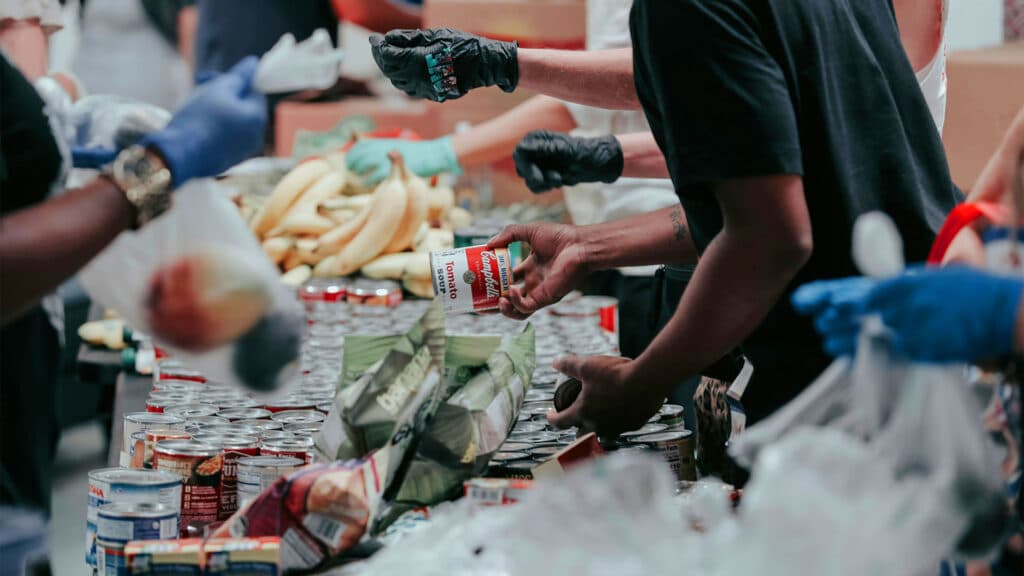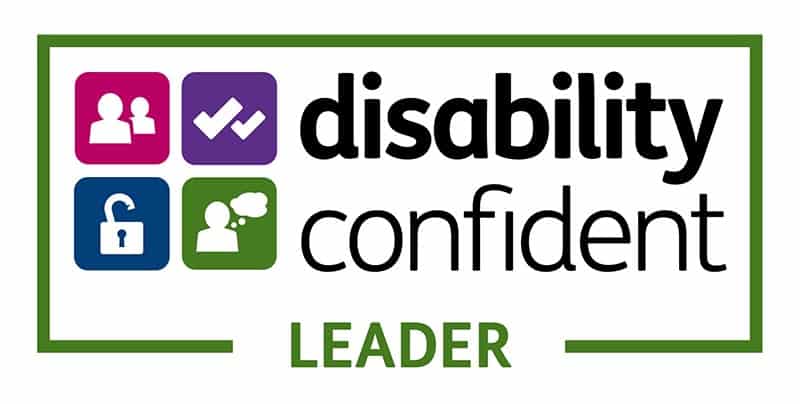
Winter and the cost of living crisis can be a tricky time for many, especially in the aftermath of Christmas spending. If you’re struggling with budgeting and affording food or other essentials, know that you are not alone, and that facing financial challenges is nothing to feel ashamed of. There are lots of others in the same situation, with approximately 2.99 million people using a food bank in 2022-23. Disabled people are even more likely to use a food bank, with research revealing that 69% of those that are referred to food banks identify as Disabled. This is a huge proportion, and food insecurity is a real problem for the Disabled community.
No one should be left hungry or living in poverty, and everyone should be able to lead fulfilling and independent lives. But, to help in crisis situations, food banks and cheap alternatives can help you make ends meet. Find out more about the support available and how we can fight food poverty, particularly for Disabled people, together.
What is a food bank and how does it work?
Food banks are run by charity organisations and rely on donations of food from the public. These donation points are at a range of places in the community, including schools, businesses, churches and supermarkets. Food and essentials are then sorted into emergency food parcels by volunteers and given to those who need it. The food parcels are nutritionally balanced, containing non perishable items like tins and packets. To get food from a food bank you need to be referred and given a food bank voucher. WECIL is one of these organisations that can refer you, and others include social workers and school staff.
Food clubs are a different option that helps people access nutritious food and other essentials at a low cost. They are different from food banks in that you still pay for your shopping, but at a significantly reduced price, in an effort to create a sustainable solution that helps those who are struggling to avoid crisis. Community organisations like food buses, pantries, schools and supermarkets can set up food clubs in their local area, and offer food for a lower than retail price. You can usually visit a food club once a week and pick from a wider selection of fresh, chilled and frozen foods.
Why people use food banks
It is no secret that we are and have been facing a serious cost of living crisis in the UK, especially over the last year, with the overall price of food and non-alcoholic beverages rising around 26% between December 2022 and December 2023. For those on a lower income or receiving benefits, this is especially devastating and can force families into food poverty.
For Disabled people, there are additional challenges that can contribute towards not being able to afford food regularly, with a staggering three quarters of people referred to food banks in the Trussell Trust network saying that they or a member of their household are Disabled people. It can be more difficult for Disabled people to access suitable jobs and a sufficient income due to barriers in the workplace, or they might face difficulties when claiming and sustaining the benefits that they are entitled to, like Personal Independence Payment (PIP). There are problems with the structure of the social security system that drives food bank use among Disabled people, including low awareness of entitlements, long waiting lists, incorrect decisions and applications that can be stressful. These barriers have created disproportionate pressure on Disabled people, forcing them to use food banks, and this needs to change!
Coupled with the fact that Bristol has a higher than average cost of living, it is no wonder that Disabled individuals and families in the local area face financial hardship, and there is no shame in acknowledging that you, like so many others, might be finding things difficult. But, positive change is in sight and there are a whole range of options available to you to improve your situation.
Resources
If you’re struggling with providing food for yourself or your family, there is always help available. You can reach out to us at WECIL for advice, information about financial support or to be referred to a food bank. We can help you access Disability related benefits, like Personal Independence Payment (PIP) and Disability Living Allowance for Children (DLA), and support you with filling out forms and completing applications. We also signpost you to other support networks to help you break the cycle of poverty and increase your independence.
There are lots of other organisations and resources, both locally and nationally, that you can use to better navigate a tight budget or low income.
- The Household Support Fund is money from the government that local councils have been given to help low-income households with food and fuel poverty. In Bristol these funds have been allocated towards free school meal vouchers, to certain charities, low income pensions, care leavers and foster households. You can check if your child can get free school meals here.
- Access help with debt and energy – WECIL are working in partnership with St. Paul’s Advice Centre and Bristol Charities to offer Debt, Energy and Navigation support on a monthly basis. This includes advice about welfare benefits, money saving and household budgeting workshops. The sessions start in February and will be the second Monday of every month.
- The Trussel Trust supports a nationwide network of more than 1,300 food bank centres and campaigns to end the need for food banks. They have a find a foodbank tool where you can search your local area.
- Family Action has launched Food On Our Doorstep (FOOD) clubs across the country. You can purchase weekly food shops that are worth approximately £10-15 for just £3.50-4! There are clubs in Bristol in Broomhill, St Pauls, Redcliffe, Inns Court, Oldbury Court, Lockleaze and Speedwell.
- Feeding Bristol is an organisation that exists to change the current inequality in our local food system, from the way food is grown and distributed, to the way it is bought and consumed. They have a directory of organisations that provide free or low-cost food support across the city, and also advice if you are worrying about money.
- The Too Good to Go app is helping to tackle food waste and providing access to low cost, surplus food from local restaurants and cafes at the end of each day by letting you purchase unsold food for a reduced price.
- Fareshare South West was formed to help tackle the local food poverty issue by redistributing surplus food across the region. They give out quality, in date surplus food to charities and community groups like homeless shelters and school breakfast clubs, turning an environmental problem into a social solution.
- Budget recipes – from burritos to curry, discover a range of recipes from some of the UK’s leading chefs for creating tasty budget meals for you or your family.
- Kids Eat for £1 – a number of restaurants and cafes offer free or cheap meals for children, so you can enjoy a meal out with less financial pressure! Have a look at the participating establishments and terms of use.
Summary
Everyone, including Disabled people, deserves to lead independent, fulfilling and stable lives free from food poverty. But, the reality is that many are struggling, and we are here to support you in these times of need. If you or your family need advice about financial benefits or a food bank referral, then don’t hesitate to get in touch with us at WECIL Navigators.



